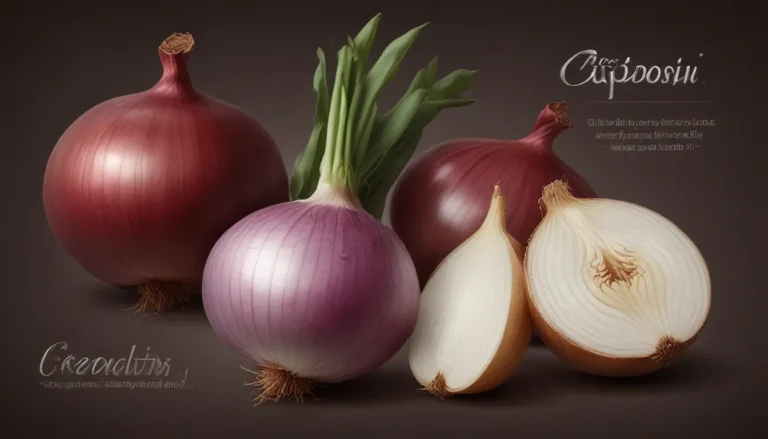The pictures in our articles might not always show exactly what the text is talking about. We use these images to make the article more interesting and eye-catching. They are there to add to the text, but not to replace it or show every detail.
Are you a food lover, a health enthusiast, or simply curious about vibrant and versatile herbs? Look no further than sorrel! This tart and lemony herb has been a culinary and medicinal staple for centuries, bringing a refreshing twist to dishes and a host of health benefits to the table. Let's explore the fascinating world of sorrel and uncover 14 key facts that will inspire you to embrace this herb in your culinary adventures.
Tangy Twist: Sorrel’s Origin and Nutritional Value
Sorrel, also known as Rumex, is a herbaceous perennial plant that belongs to the Polygonaceae family. With its vibrant green leaves and tangy, lemony flavor, sorrel adds a unique twist to various culinary dishes. But beyond its taste, sorrel is packed with nutrients and antioxidants. It is rich in vitamins A, C, and K, as well as minerals like potassium, magnesium, and iron. These nutrients contribute to its numerous health benefits, including improved digestion, enhanced immune function, and increased collagen production.
Culinary Versatility: Sorrel in the Kitchen
Throughout history, sorrel has been a star ingredient in cuisines around the world. From soups to sauces to salads, sorrel's tangy flavor offers a refreshing and zesty element to dishes. Whether enjoyed raw in salads or cooked in recipes to mellow its tartness, sorrel is a versatile herb that can elevate your culinary creations.
Health Benefits: Sorrel in Traditional Medicine
In addition to its culinary uses, sorrel has a long history in traditional medicine. It has been used to stimulate appetite, aid in digestion, and even treat skin conditions like eczema and psoriasis. Studies have also shown that sorrel possesses anti-inflammatory and antimicrobial properties, making it a valuable ingredient in natural remedies for various ailments.
Refreshing Beverages: Sorrel Drink and Beyond
One popular way to enjoy sorrel is by making a refreshing beverage known as "sorrel drink" or "hibiscus tea." By steeping dried sorrel leaves in hot water, you can create a tart and tangy drink that is perfect for sipping chilled on a hot day. Sorrel's versatility extends beyond beverages, as it can be blended into sauces, pureed into soups, or even added to stuffing for a unique twist.
Easy Growth: Sorrel in Your Garden
You don't need a green thumb to grow sorrel at home. This low-maintenance herb thrives in garden beds and containers, providing you with a fresh supply of tangy leaves right at your fingertips. Whether you're a seasoned gardener or a novice, sorrel is a great addition to any home garden.
Culinary Inspiration: Sorrel in French and Global Cuisines
In French cuisine, sorrel shines in dishes like sorrel soup, adding a distinct tanginess to classic recipes. Beyond French cuisine, sorrel is a staple in Caribbean and African dishes, where it is used to make festive holiday drinks like "sorrel punch." Sorrel's vibrant flavors and colors make it a popular ingredient in diverse culinary traditions.
Cautionary Notes: Sorrel’s Oxalic Acid Content
While sorrel is generally safe for most people, it does contain oxalic acid, which gives it its tangy taste. Individuals with kidney problems or a history of kidney stones should consume sorrel in moderation to avoid any potential complications. For most people, sorrel's tangy flavor and impressive health benefits outweigh any potential risks.
Lemon Replacement: Sorrel’s Culinary Substitute
If you ever find yourself out of fresh lemon juice, sorrel leaves can be a great alternative. Their tangy flavor can mimic the tartness of lemon juice in various recipes, adding a refreshing twist to your dishes. Sorrel's unique taste and flavor profile make it a versatile herb that can stand in for other herbs in certain recipes.
Sorrel's tangy flavor and impressive health benefits make this herb a must-try for culinary enthusiasts. Whether you're adding it to salads, soups, or beverages, sorrel offers a range of culinary possibilities that can elevate your dishes. From its origins to its culinary uses to its potential health advantages, sorrel is a versatile herb that deserves a place in your kitchen.
Embrace Sorrel in Your Culinary Adventures
In conclusion, sorrel is a versatile and unique herb that offers numerous health benefits while adding a tangy and refreshing flavor to various dishes and beverages. The rich history, vibrant colors, and distinct taste of sorrel make it a popular ingredient in cuisines around the world. If you're curious about other lesser-known plants, consider exploring wood sorrel or delving into the life of Sorrell Booke, a talented actor. Expand your knowledge and embrace the delightful world of sorrel in your culinary adventures.
FAQs: All Your Sorrel Questions Answered
-
Q: What is sorrel?
A: Sorrel is a tart, leafy herb with a tangy, lemony taste that is often used in cooking and traditional medicinal practices. -
Q: How is sorrel used in cooking?
A: Sorrel can be added to soups, sauces, salads, or used as a garnish. It is also commonly used to make sorrel soup, a traditional dish in many cultures. -
Q: What are the health benefits of sorrel?
A: Sorrel is rich in vitamin C, antioxidants, and minerals, offering health benefits such as boosting immunity, improving digestion, and reducing inflammation. -
Q: Where can I find sorrel?
A: Sorrel can be found in grocery stores, farmer's markets, or specialty food stores. You can also grow your own sorrel herb in a garden or container. -
Q: Are there any potential side effects of consuming sorrel?
A: Sorrel is generally safe when consumed in moderation, but individuals with kidney stones or oxalate-related health concerns should consult a healthcare professional before consuming large amounts. -
Q: Can I use sorrel as a substitute for other herbs?
A: Sorrel has a unique taste and flavor profile, making it a suitable substitute for herbs like lemon balm or lemon thyme in certain recipes.
Our dedication to providing accurate and engaging content is evident in each fact we share about sorrel and other topics. Trust in our commitment to quality and authenticity as you explore the delightful world of herbs and expand your culinary horizons with sorrel.






